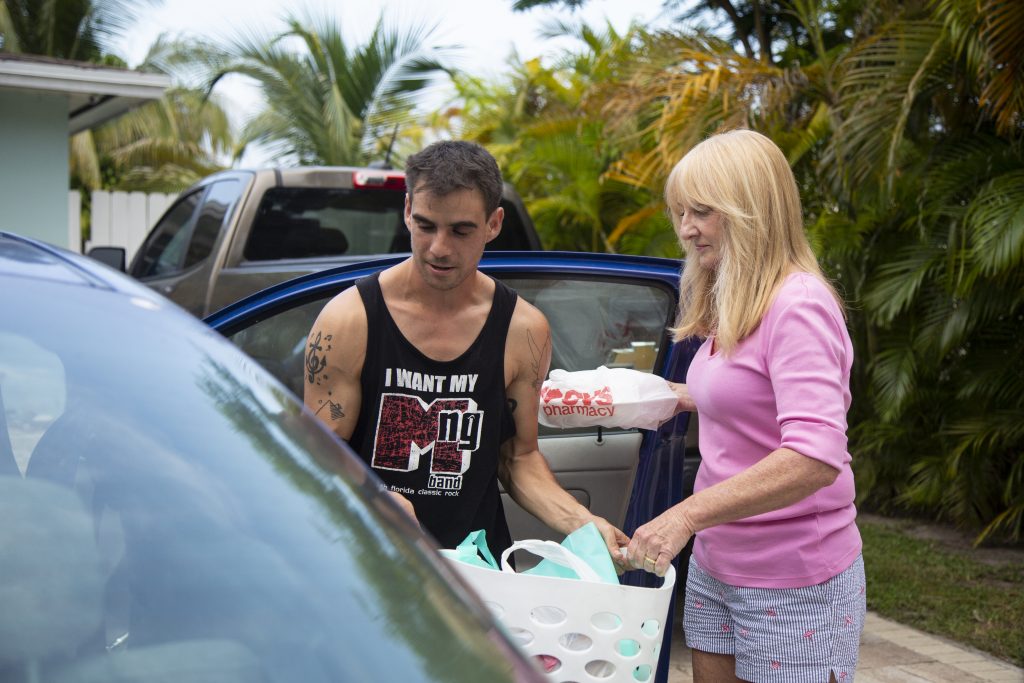These moms gave up everything to care for chronically ill children
By Chika Ojukwu
Barbara Goleman Senior High School
It was just like any other night.
Judy Feldman and her 15-year-old son were at their home in Palmetto Bay. Andrew was playing video games and Feldman was cleaning up after dinner. Not a single thing was out of place.
Dinner…check.
Laundry…check.
Son…alive.
Just like any other night, Feldman went to Andrew’s room to say good night. Rubbing his back like she always did, she felt a lump about the size of a golf ball, but, paying no mind, went to bed.
Everything was normal until it wasn’t. After several weeks, the lump had grown to the size of a grapefruit. Andrew was diagnosed with Ewing’s sarcoma, a rare cancer that targets the soft tissue and bones.
Feldman now had a child with a chronic illness.
“When you see him that weak and that sick, yeah . . . that’s scary,” Feldman said.
In the U.S., about 20% of children suffer from a chronic illness, a number that is rising every year. And for each chronically ill child, there is a parent or other caregiver making sacrifices to their own lives. About 66% of caregivers are female, according to the National Center on Caregiving.
Feldman, 52, has been with Andrew for every chemotherapy and radiation appointment in his year of treatment.
She had to sacrifice her career as a preschool teacher at Bet Shira Early Childhood Center where she had worked for 15 years. She left her job the day her son was diagnosed.
“I just picked up my things and left. Taking care of Andrew was a 24-hour job,” Feldman said.
She received support from friends who did what they could to help. In the end, it was her duty to take care of her son.
Making matters worse, Feldman had been in the process of a divorce when her son was diagnosed and now she was a single parent. As the year progressed, Feldman had to give up her social life, and, at times, her sanity.
“It’s been a year of not really going anywhere or doing anything, except for going to the cancer institute and doctor’s appointments. There was never a time that I wasn’t here taking care of him,” Feldman said.
While Feldman had a year of sacrifice, Deni Quinn will be taking care of her son for a lifetime. Quinn, 61, adopted a child with Fetal Alcohol Syndrome, a condition that affects his behavior and physical development.

Unlike Feldman, Quinn continued working. But as time went on and Danny’s behavior worsened, she made the decision to work from home.
“Previously, I was so focused on my career, and now I have this other person to worry about,” Quinn said.
Nothing could extinguish the worries that ran through her head 24/7.
This is true for most mothers dealing with chronic illness.
“It’s a stressor that no one is really prepared for,” said Whitney Goodman, a licensed psychotherapist at the Collaborative Counseling Center.
Mothers with chronically ill children go through a roller coaster of emotions. Both Feldman and Quinn often wished that they could bear the pain for their kids.
“As a parent, you don’t want your child to suffer,” Feldman said. “You’d rather go through it all instead of them.”
They also both lost sight of their own well being. Their role as caretaker affected their mental health.
“At first I was angry and trying to hide it from him. And I was going through the divorce at the same time. I was a wreck,” Feldman said.
And taking care of a sick child can cause parents to get sick themselves. Goodman has seen it many times in her practice.
“When you have a parent of a chronically ill child, you definitely are going to see stress manifesting in certain types of medical conditions,” she said. “Caregivers are notoriously bad about speaking up. They might not even want to notice it.”
But both mothers have hope for the future. Feldman’s son, Andrew, is awaiting his last surgery at the Miami Cancer Institute. He is in remission and taking a few classes online.
“Things are good. It’s been a fun year,” Feldman said, chuckling a little. “I need to make more money now. As soon as Andrew is done with his surgeries, I’ll start a new career.”
Quinn’s son, Danny, has moved out of the house and works a few hours a week as a gymnastics trainer, both achievements that his therapists thought he could never do successfully.
The advice Feldman has for other mothers that are going through the same experience is to not be too hard on themselves.
Quinn agrees.
“Just hang in there. See the glass half full. Don’t look at the downside because once you look at the downsides, you never get through it,” she said.
“Remember to always have hope.”